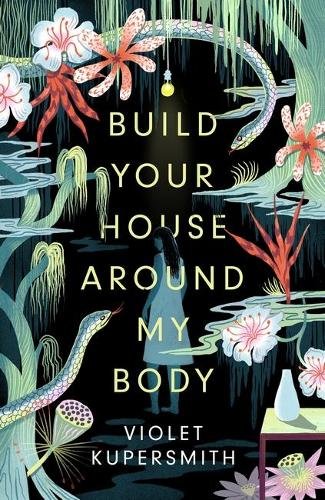What a wild ride! It's so tricky trying to sum up Kupersmith's “Build Your House Around My Body” which is part crime novel/part supernatural ghost story but it largely centres around Winnie, a young American woman with Vietnamese heritage who is living as an expat in Saigon. It's a tantalizing puzzle whose narrative moves backwards and forwards in time tracing the disappearances of two young women in two different time periods. However, even with all this switching between stories which gradually connect I always understood where I was and felt extremely engaged with whatever turns the tale took. It's a riveting story in terms of its atmospheric detail with scenes ranging from a team of ghost busters who visit a rubber tree plantation overrun with snakes to graphic instances of bodily transformation. Yet, there's also a side to the book rooted in concrete reality concerning the ways in which women's bodies are handled and controlled, the dilemma of people who don't fit neatly into a single national/racial identity and the reverberating effects of French colonialism in Vietnam. There's a sly sense of humour which is often present in both shocking plot twists and quiet observations about Winnie's experiences. All these aspects of the book are artfully intertwined to creatively build an utterly compelling and gloriously mischievous monster of a novel.
One of my favourite scenes is when Winnie is taken around Saigon by her brother's medical school classmate Dr Sang. He feels obligated to do this and she feels obligated to join him so there's a delicious awkwardness as he takes her to tourist destinations he confidently assures her Americans want to see though he doesn't bother to enquire what she's interested in. This is also an extension of how out of place Winnie feels and she finds it difficult to find somewhere to live peacefully bouncing from co-habiting with intrusive relatives to despised colleagues. She's utterly uninterested in her teaching job and her students are equally apathetic. This builds such a compelling portrait of someone who is searching for a sense of belonging and a place to call home. Therefore, the wondrously weird and unconventional way in which her story plays out has a kind of logic to it. So I finished the book feeling fully satisfied. But I was also eager to go back to see more clearly how all the many pieces of the story fit together now that I could see the full picture. My only criticism of the novel is how it sometimes excessively lingered on characters' digestive issues, but maybe that's my own squeamishness. I know the many descriptions of bodies serve a purpose in showing how we inhabit them and are contained by their mechanisms. Overall, I appreciated how the story invokes folklore to show the ways in which people can be pushed out of their physical circumstances to inhabit more sinister forms of existence.

















